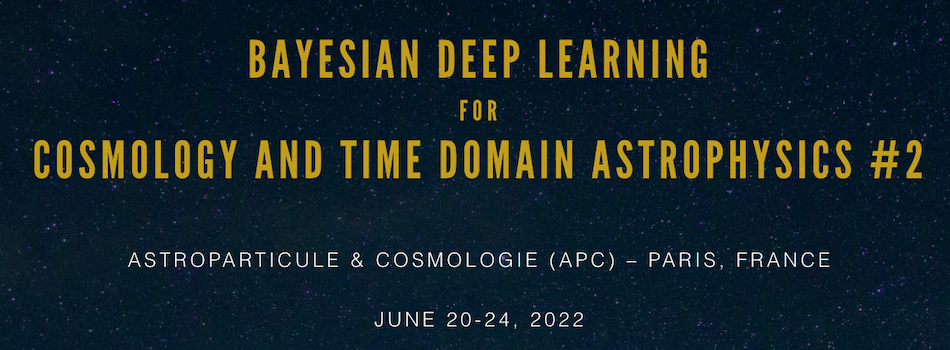Machine learning attracts a lot of interest in the fields of cosmology and time-domain astronomy and may potentially lead to major breakthroughs. Its adoption by the scientific community has been increasing dramatically in the past few years. Current progress in the machine learning community can simultaneously bring a lot to ours and must be monitored closely.
Among developments of interest for the astronomy community, probabilistic machine learning models, especially Bayesian neural networks, bring an estimation of uncertainty and combine deep neural networks architecture with Bayesian inference.
Cosmologists also rely a lot on forward modelling and often face intractable likelihoods. Modern techniques like simulation-based inference and differentiable programming can be very valuable for model selection and model parameters inference.
Time series analyses have relied for some time on the use of recurrent neural networks, more recently on transformers. Some other analyses have been using convolutional neural networks, or graph neural networks. The workshop will explore if new architectures like graph transformers could be relevant in some fields, and how such networks can be made probabilistic.
This workshop will give the participants the opportunity to learn more about these emerging methods and how to use and exploit them in their research. The program includes invited lectures and tutorials from major computer science experts and invited and contributed talk, and poster sessions aimed at sharing experience between physicists on the practical applications of machine learning. It is intended for researchers and students that are familiar with machine learning, use this type of algorithms for their own work, and want to learn about the advanced techniques related to Bayesian deep learning.
This workshop is part of the LSSTC Enabling Science effort and will give opportunity to younger scientists to apply for a grant covering lodging and part of the conference fees. Application can be made through a dedicated page on the menu on the left 👈.
Workshop program
- Mon 20 – "School day" with 4 x 90 min interactive sessions
- Tue 21–Fri 24 June – Workshop with keynote speakers, contributed talks, tutorials, round tables and lightning talks.
Workshop topics
- Cosmology and time-domain astro applications of Bayesian deep networks
- Methods for quantifying models uncertainty
- Anomaly and outlier detection
- Simulation-based and likelihood-free inference
- Probabilistic ML frameworks
- Use of Bayesian deep learning outside of academia
- Ethics of large-scale machine learning
Important dates
- April 19th 2022 – pre-registration, registration and call for contributions start
- May 18th 2022 – contributions & grant application deadline for pre-registered young scientists
- June 6th 2022 – end of registration
Confirmed speakers
- Anja Butter, ITP Heidelberg, Germany
- Colin Caroll, Google, USA
- Jean-Gabriel Ganascia, LIP6, Paris, France
- Stephen Green, MPI, Potsdam, Germany
- Alan Heavens, Imperial College, London, UK
- Tomasz Kacprzak, ETH Zurich / PSI, Switzerland
- Junpeng Lao, Google, Switzerland
- Ashley Villar, Penn State University, USA
- Ben Wandelt, IAP, Paris, France

